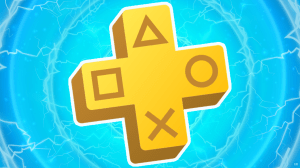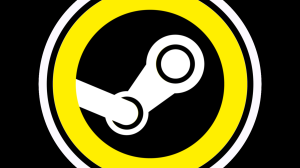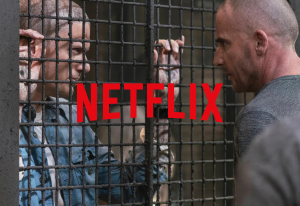Today, Remedy Entertainment finally releases FBC: Firebreak. It’s an important launch for the Finnish studio, as it’s their first online, multiplayer-focused game in an era that has resulted in classics like Control and Alan Wake 2. Still, Remedy’s unique flair is exactly what allows FBC: Firebreak to stand out, as it takes the core of your standard cooperative shooter and blends it with the wild, sci-fi world of Control, as players do things like fight a giant monster made of sticky notes. Considering it’s part of both the Xbox Game Pass and PlayStation Plus Extra game catalogs, it’s the next multiplayer game worthy of you and your friend’s time.
Videos by ComicBook.com
Ahead of the game’s launch today, I caught up with Remedy Entertainment at Summer Game Fest Play Days. Speaking to Game Director Mike Kayatta, he seemed confident about the impending release of FBC: Firebreak, though he admits it has been a challenge for Remedy to tackle this new genre. He also seems confident that Remedy is prepared to support FBC: Firebreak for the months and years to come, even if the game eschews a lot of the FOMO-focused update cadences of many other games of its ilk.
From the outside looking in, FBC: Firebreak looks like a massive mix-up for Remedy. This is a studio very specifically known for a particular kind of single-player adventure, creating a multiplayer game that looks and plays very differently. That didn’t work out so well for studios like Rocksteady with Suicide Squad: Kill the Justice League. Kayatta was transparent about the fact that FBC: Firebreak is a game of firsts for Remedy, but also believed the studio’s intuition and new talent were smart enough to overcome any of the challenges that arose during development.
“We had so many different firsts [with FBC: Firebreak],” Kayatta said. “There’s the first-person shooter thing, we’re self-publishing for the first time, it’s tonally very different, and it’s not story-driven in your face. It’s all very different, so almost everything has been a challenge. This studio has, for over two decades, made games in a very certain way that produced really beloved products that are awesome. Here, we’re not experts yet. Is it going to work? Is this going to be fun? We rely on a lot of people who have experience from outside the studio that they bring, but for the most part, this has been an experience in trusting your gut and remembering that we make games, but we also play games. We asked what we would want from the game, and that really led everything.”
In some ways, you can tell this is the studio’s first multiplayer game. That sometimes helps the game, particularly when it comes to its wild creativity in mission designs, weapons, and classes. Other studios with more multiplayer experience might not have been as fantastical or as fascinated with mechanics like elemental interactions as Remedy was. It can also hurt the game, as it has some confusing UI and clarity issues. The good ultimately outweighs the bad, though.
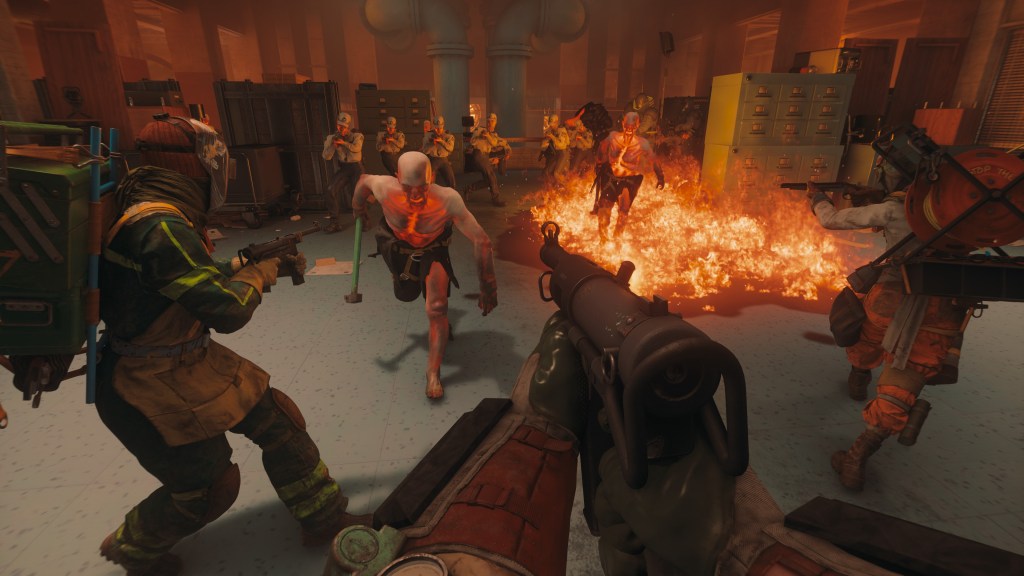
FBC: Firebreak launches with five different Jobs (missions), three Kits (classes), a free Requisition (battle pass), and a Requisition. Considering you can play jobs at different clearance levels and difficulties, it’s a solid amount of content for a day-one co-op game launch. It also definitely feels like something Remedy made to build on over time, even if it’s avoiding using the term “live service” to describe FBC: Firebreak. In fact, Kayatta says Remedy was very deliberate in avoiding the elements of “FOMO” common in live-service games, so it’s not planning timed battle passes or seasonal content for the game right now. He points to the impending release of a game like Death Stranding 2: On the Beach as a reason why it wouldn’t be smart for Remedy to design FBC: Firebreak as a live service timesink.
“If you play it for like three hours and say ‘that was fun, but Death Stranding 2 just came out and I’m going to play that instead,’ that’s totally fine,” he said. “I don’t want players to feel like they’re missing out on something because I’m playing the thing I want to play instead. But, six months from now, you might see a cool update and come back. We want you to have every single thing that came out whenever you choose to play, so everything that comes out of the game just gets permanently added to it.”
Remedy has already teased some of what players can expect from FBC: Firebreak post-launch. In the short term, players can expect patches to update and tweak certain parts of the game based on players’ feedback.
“I can’t wait until we actually launch and just get tons and tons of people sharing their opinions, things that they like, and things that they don’t like,” Kayatta explained. “We’re not going to overreact and just constantly tweak and nerf stuff; we don’t want to do that. But what type of things do people want us to build? New levels, new guns, or whatever. That’s what we want to hear because we want to support the game for a long time, and we want to build the game people want to play.”

Looking at the long term, the first major update for FBC: Firebreak is planned for this fall. It will introduce a new Job called Outbreak, a new jobsite called the Research Sector, new enemies, new gameplay systems, new free rewards, and the second paid Classified Requisition. Then, before the end of the year, another update will be released for FBC: Firebreak, adding a Job codenamed Blackout alongside content similar to what was included in the first major update. Putting a number to it, Kayatta claims that Remedy will “grow the game by at least 40% more before this year is over.”
Remedy is also already wondering what updates will look like in 2026. Kayatta seemed intent on supporting FBC: Firebreak for the indefinite future and is already setting up the development team to be prepared to create content for 2026. Remedy just needs a better idea of what players actually want from substantial content updates first.
“[For 2026], we have the production set up and ready, but we haven’t committed to anything, even internally. We have ideas, of course, but we are waiting to see. Do people want more jobs? Cool, we’re ready to make more jobs. Are people looking for things like enemies and guns? We want to know what people are looking for so we know what to build. We’ve made our best guess for this year already because it takes a long time to build stuff, so we’re in production on those updates now. Fortunately, for next year, there’s still a little bit of time to see what the people do and say after launch, and then we’ll start building our plans with the community actively after that.”
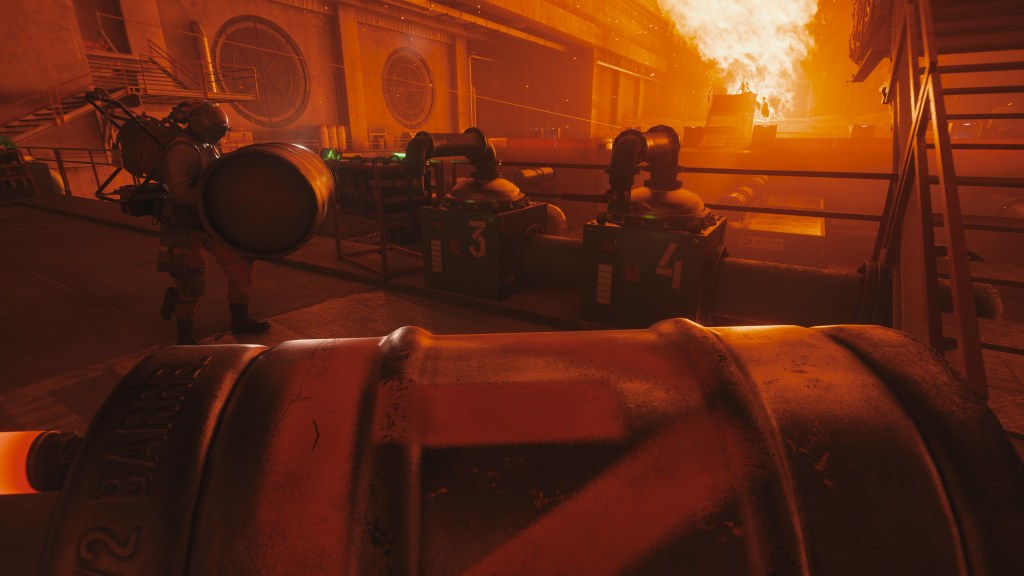
The launch of a new multiplayer game is always a fascinating time for a studio. They can take off and thrive, like Helldivers 2, or crash and burn, like Concord. Thankfully, Remedy’s game development lineup is diversified enough that FBC: Firebreak underwhelming wouldn’t destroy the company as it continues work on Max Payne remakes and Control 2. Still, like every studio before a launch, its developers are eager to see what the future holds. And from what I’ve played of FBC: Firebreak, I certainly hope it goes very well for Remedy.
“I’m very excited. So many firsts, so many unknowns,” Kayatta tells me about his feelings heading into launch. “With this type of game, you don’t just build the fun directly for players. You build the systems and the machine that creates for players, and then you need the chaos of the players before you understand what the game is. For years, it doesn’t really work yet, and you’re living the dream of, in the future, getting things together. And we’re right at the end of that process. Now, that feeling of all that coming together and seeing people play the game, laugh, have fun, get surprised, and scream when they die, I honestly can’t even really put it into words.”
FBC: Firebreak is available now for PC, PS5, and Xbox Series X|S and is part of the game catalogs for Xbox Game Pass Ultimate and PS Plus Extra.



